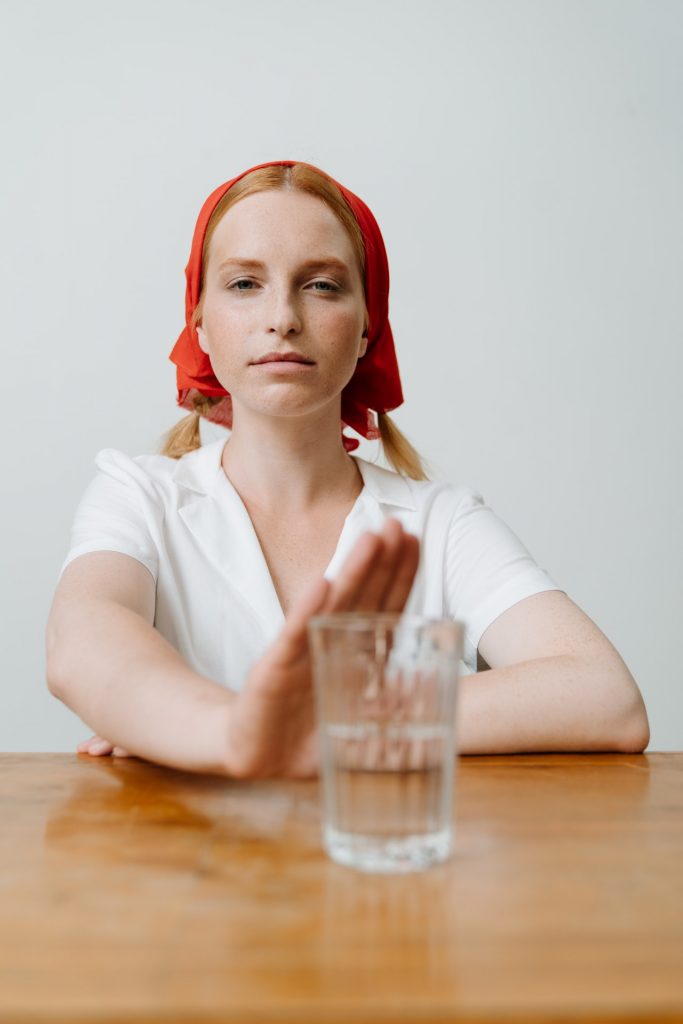How to Curb Alcohol Cravings: Advice From the Ria Health Team
Cravings are among the most persistent challenges people face in recovery. In the moment, it’s normal to feel overwhelmed and unsure about how to handle them. This is why it’s so important to have a plan ready in advance for dealing with cravings—the same way you’d practice a fire drill to be prepared for a real fire.

As a Ria Health coach, “coping with alcohol cravings” is one of the most common topics I discuss with the members of our online program. Here are the basics of what cravings are, and six tips for dealing with them when they come up.
What are Cravings?
Many people think of alcohol cravings as a strong physical urge to drink, and this is often accurate, but not all cravings are the same. In some cases, cravings may only present themselves as thoughts about alcohol. Cravings can last up to 15-20 minutes, but may feel as if they do not have an end point.
People can experience cravings at varying times due to triggers. Drinking triggers are internal or external cues that can cause a craving. Triggers can be as simple as being around others who are drinking, feeling bored, or having a memory about alcohol use.
Why Does My Body Crave Alcohol?
A deep understanding of why the body craves alcohol is essential for any strategy aimed at beating alcohol addiction. Alcohol, like other addictive substances, impacts your brain’s reward system. It stimulates the production of dopamine, a neurotransmitter that creates feelings of pleasure and satisfaction. As you drink, your brain learns to associate alcohol with these pleasant feelings and over time, creates an expectation that alcohol will lead to reward.
Additionally, chronic alcohol consumption changes the balance of chemicals in your brain. The brain adapts to the sedative effects of alcohol by producing more of the excitatory neurotransmitter glutamate and less of the inhibitory neurotransmitter GABA. This means when you suddenly stop drinking, the brain is left in a hyper-excitable state, leading to withdrawal symptoms and cravings.
What Should I Do if I’m Craving Alcohol?
1. Change rooms or leave the area where you are having cravings
Go on a walk—somewhere where you normally would not drink alcohol—and don’t feel the need to pressure or “test” yourself. There’s no need to force yourself to stay anywhere where you are experiencing cravings, whether it is a social event or a certain room in your home.
If you attend an event, know that it is okay to leave early if you are experiencing cravings—your goal of abstinence or moderate drinking is the priority. Friends and family may not understand at the moment, but you are doing what is right for you.
2. Wait it out
Give yourself a 20 minute delay to respond to your craving. It could be that after that time, your craving will have already passed.
Explore your triggers in that time frame using the HALTB exercise (are you Hungry, Angry, Lonely, Tired, or Bored?), then address them. For example, if your trigger is being bored, set out activities for yourself, such as a book you have been meaning to read but haven’t had time for.
3. Accept that experiencing cravings is normal
Acknowledge that you are having a craving, and remind yourself that it is not permanent. You will generally experience cravings due to triggers, and the way you react to those triggers will help you in decreasing future cravings. Practice a mindful activity like deep breathing or a visualization exercise.
4. Have substitutes available for when you have cravings
Stock your refrigerator with nonalcoholic beverages: sparkling water, ice teas, soft drinks, nonalcoholic beers, and sports drinks. Making nonalcoholic beverages available and appetizing to you can increase your motivation to have them instead of alcohol.
5. Create a statement to help you refocus on your goals
Self-talk can help in combating cravings by reminding you of your motivation for change. For example, when having a craving you could say to yourself, “I am not going to have any alcohol tonight because I want to sleep well.” Similarly to affirmations, these statements can help you reinforce your intentions, stay on track, and change habits.
Make a list of your motivations and goals, and use those to craft a few statements to say to yourself in triggering situations.
6. Track your triggers, and the times when you experience cravings
When you have a craving, write down the time, what is happening, and how you are feeling in order to identify common triggers. When you know what your triggers are, and when to expect them, you can create a game plan for when you experience cravings.
For example, if you notice that you crave a drink every day when you walk in the door after work, you can start targeting that time by altering your routine. Instead of walking in the door and starting dinner immediately, start by changing out of your work clothes, or going for a five minute walk before starting dinner. This will help you disrupt the trigger, and begin establishing new patterns.
Can Supplements and Nutrition Help My Alcohol Cravings?
Some supplements and nutrition strategies may assist in reducing alcohol cravings and withdrawal symptoms. Prolonged alcohol consumption can actually deplete the body of essential vitamins and minerals, causing nutritional deficiencies that may intensify cravings. Restoring these nutrients can help manage these cravings and support recovery.
For example, as part of a broader healthy lifestyle, Vitamin B1 (Thiamine) and B3 (Niacin) can help restore nervous system and brain health. Magnesium assists in relaxing the nervous system and managing sleep disturbances. Omega-3 fatty acids, found in fish and flaxseeds, support brain health and mood regulation.
Moreover, maintaining a balanced diet high in protein, complex carbohydrates, and healthy fats can help regulate blood sugar levels. Fluctuations in blood sugar can trigger cravings of many kinds, so keeping your blood sugar steady may help reduce the desire for alcohol.
Remember that supplements and nutrition should be part of a broader, multifaceted approach to recovery, and always consult with a healthcare provider before starting any supplement regimen.
How Long Does Your Body Crave Alcohol?
The duration and intensity of alcohol cravings can vary greatly from person to person, depending on numerous factors such as the length and severity of the addiction, personal health, and the presence of co-occurring mental health conditions.
In general, the most intense cravings often occur within the first week of abstinence, as this is when withdrawal symptoms are at their peak. However, it’s common to experience intermittent cravings for several weeks or even months after quitting.
As for the duration of a single craving episode, research indicates that most cravings usually peak and subside within 15 to 30 minutes. This might sound like a long time when you’re in the throes of a craving, but knowing that there’s an end in sight can be a powerful tool to help you resist.
How Do I Stop the Urge to Drink Alcohol?
While it’s difficult to completely stop the urge to drink, there are several strategies to manage and mitigate these cravings.
- Distraction Techniques: Engage in a physical activity, read a book, or call a friend when cravings arise. The goal is to shift your focus away from the desire to drink.
- Mindfulness and Meditation: Practice mindfulness to stay present and acknowledge your cravings without acting on them. Meditation can also help you manage stress, a common trigger for cravings.
- Healthy Lifestyle Habits: Regular exercise, a balanced diet, and adequate sleep can boost your overall health, increase your energy, and keep cravings at bay.
- Professional Support: Seek help from a mental health professional, a support group, or an addiction counselor. Having a strong support system can be critical to successfully navigate the recovery journey.
- Medication-Assisted Treatment: There are medications that can help with alcohol cravings. If you are a Ria Health member, you’ll work with an addiction coach and a member of our medical team to find a medication that works for you and helps improve your alcohol cravings. If you’re not yet a Ria member, we can help you learn how medications like naltrexone can help with alcohol cravings.
Finding What Works For You
Remember, it is normal to experience cravings in recovery, and changing the way you react to them takes time. Knowing that you have options about how you respond to cravings is an essential part of maintaining your recovery goals—whether you’re cutting back or quitting completely.
Continue to practice strategies that work for you, and if you need some assistance, it never hurts to ask for support. Our coaching team at Ria is always here to help—just a tap away on your smartphone.
Will insurance cover treatment? Verify Coverage
Have Questions? Call (800) 504-5360



